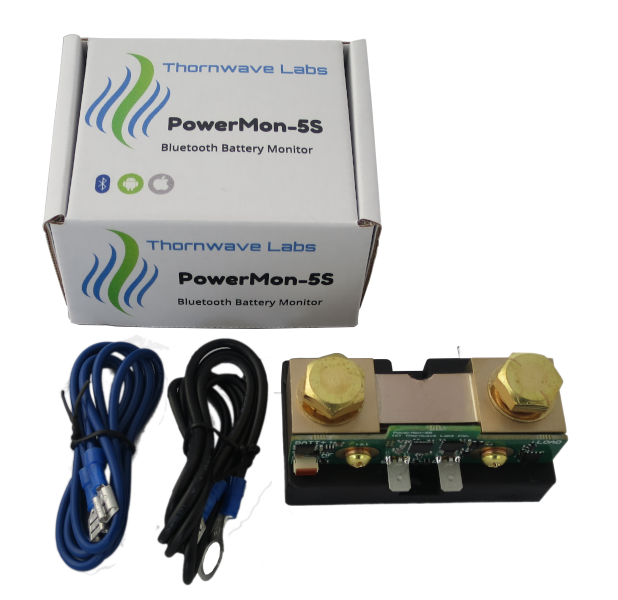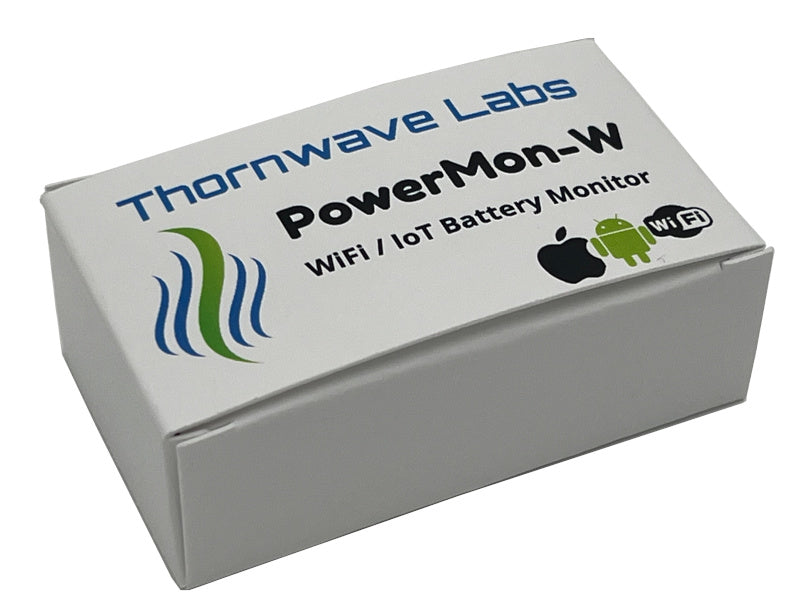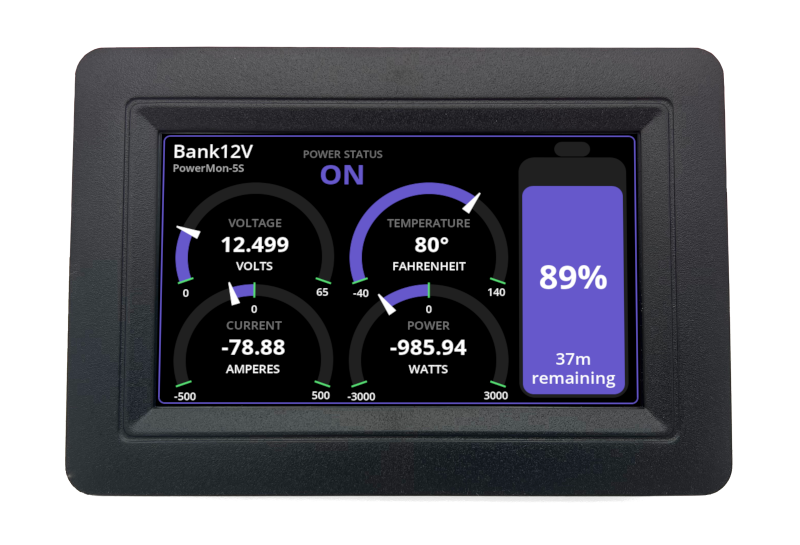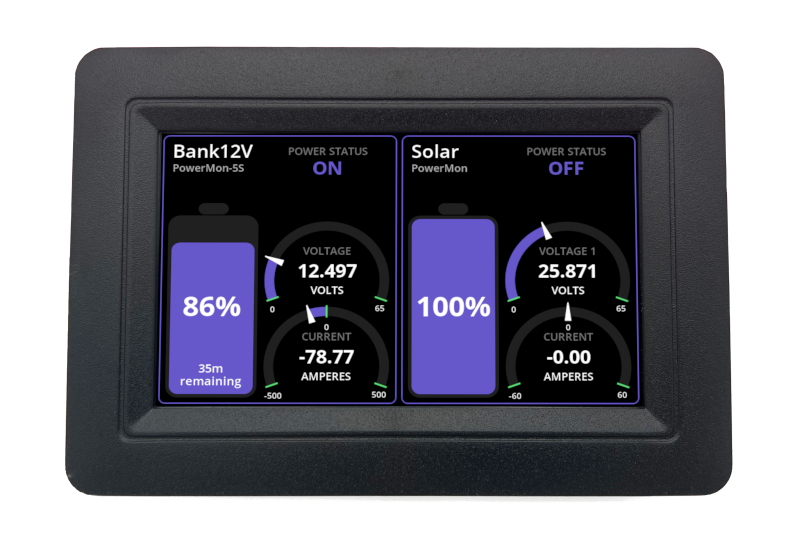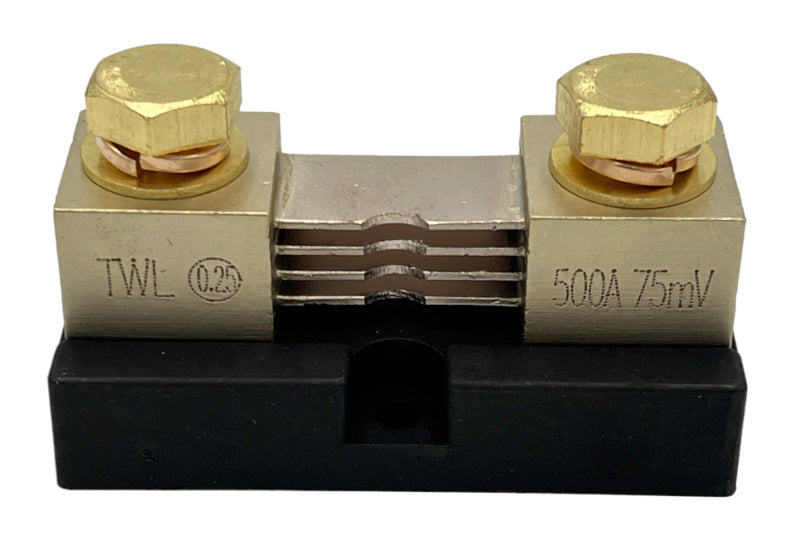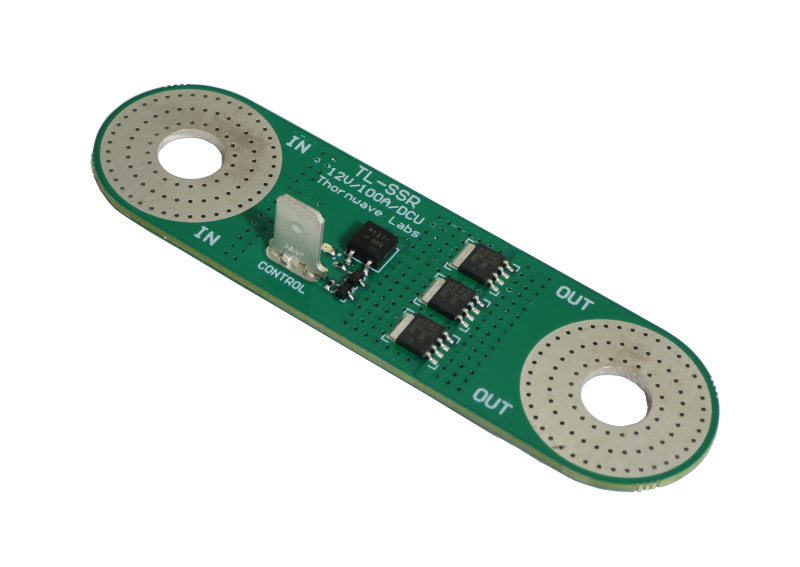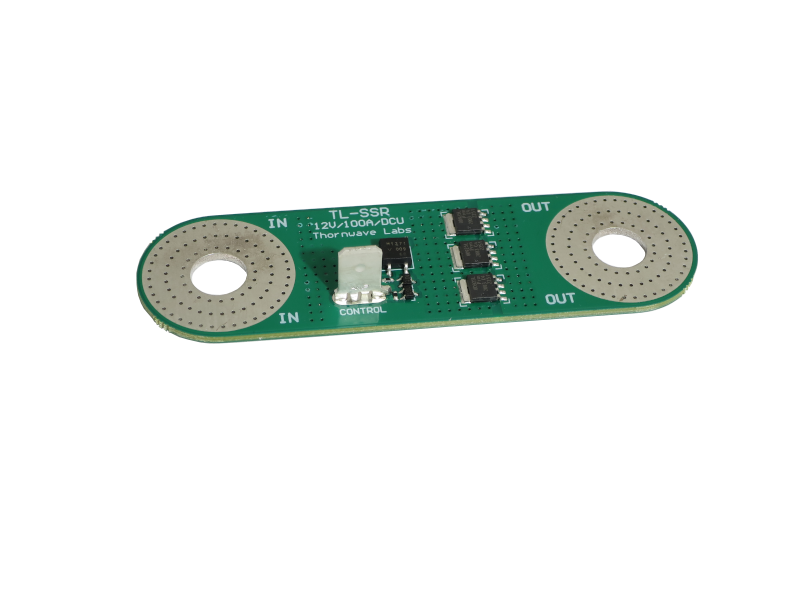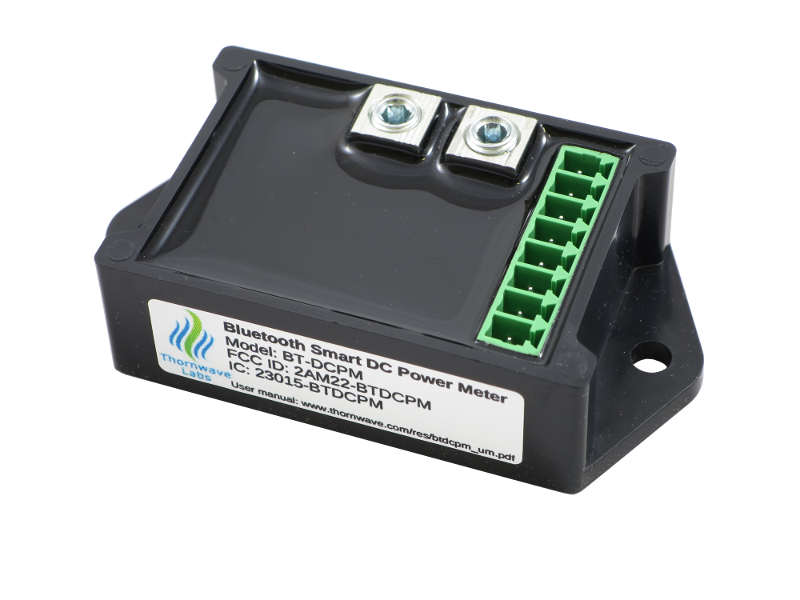
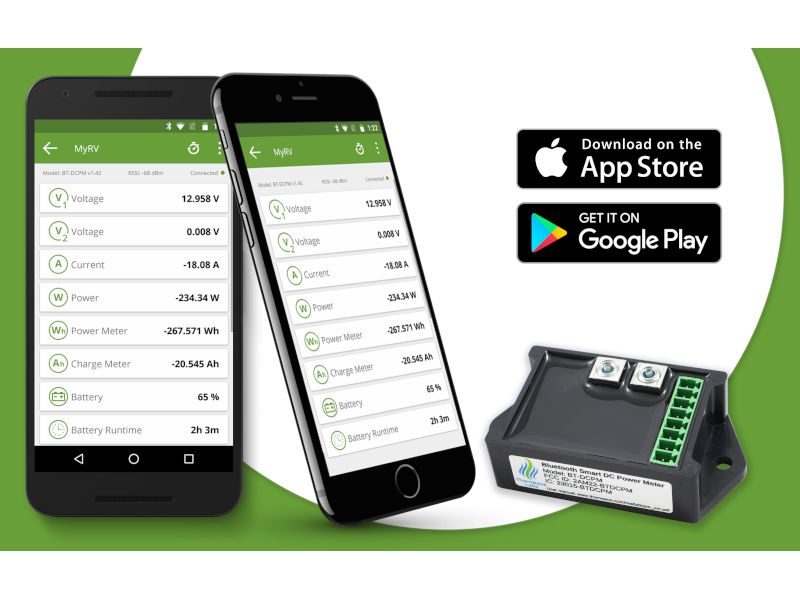
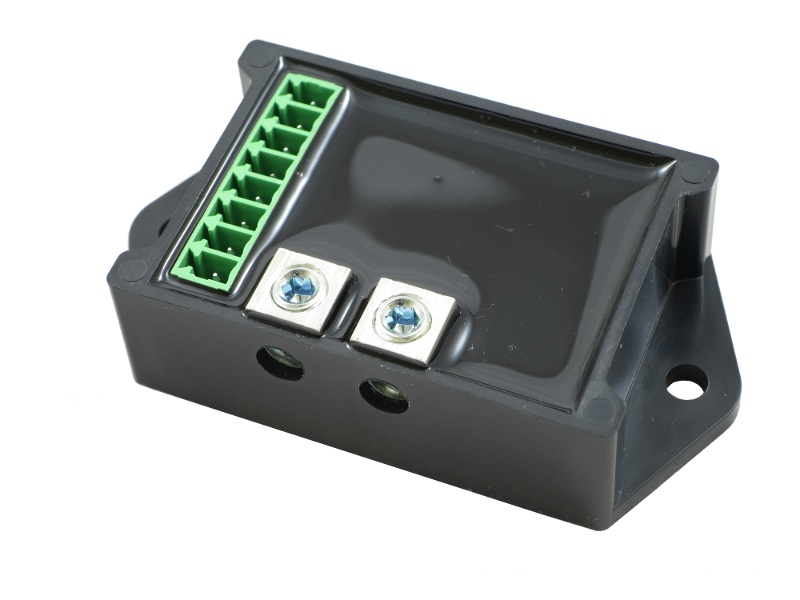
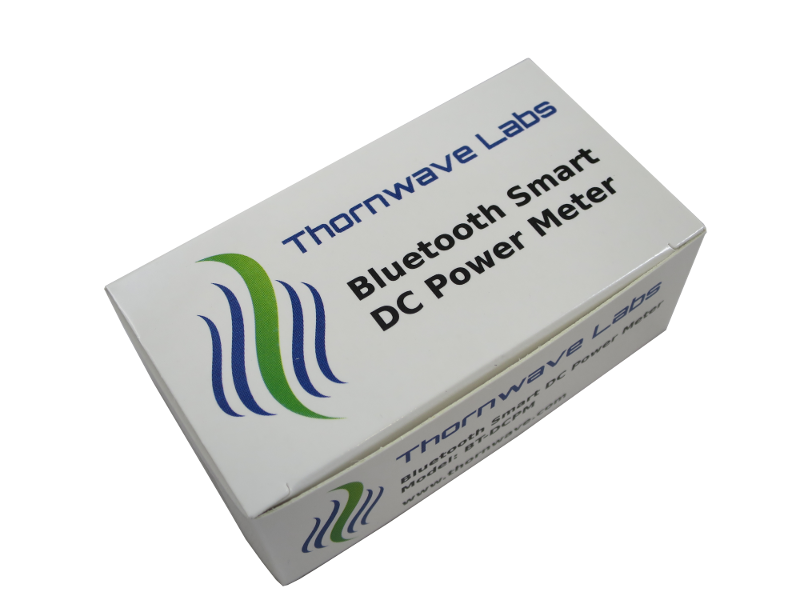
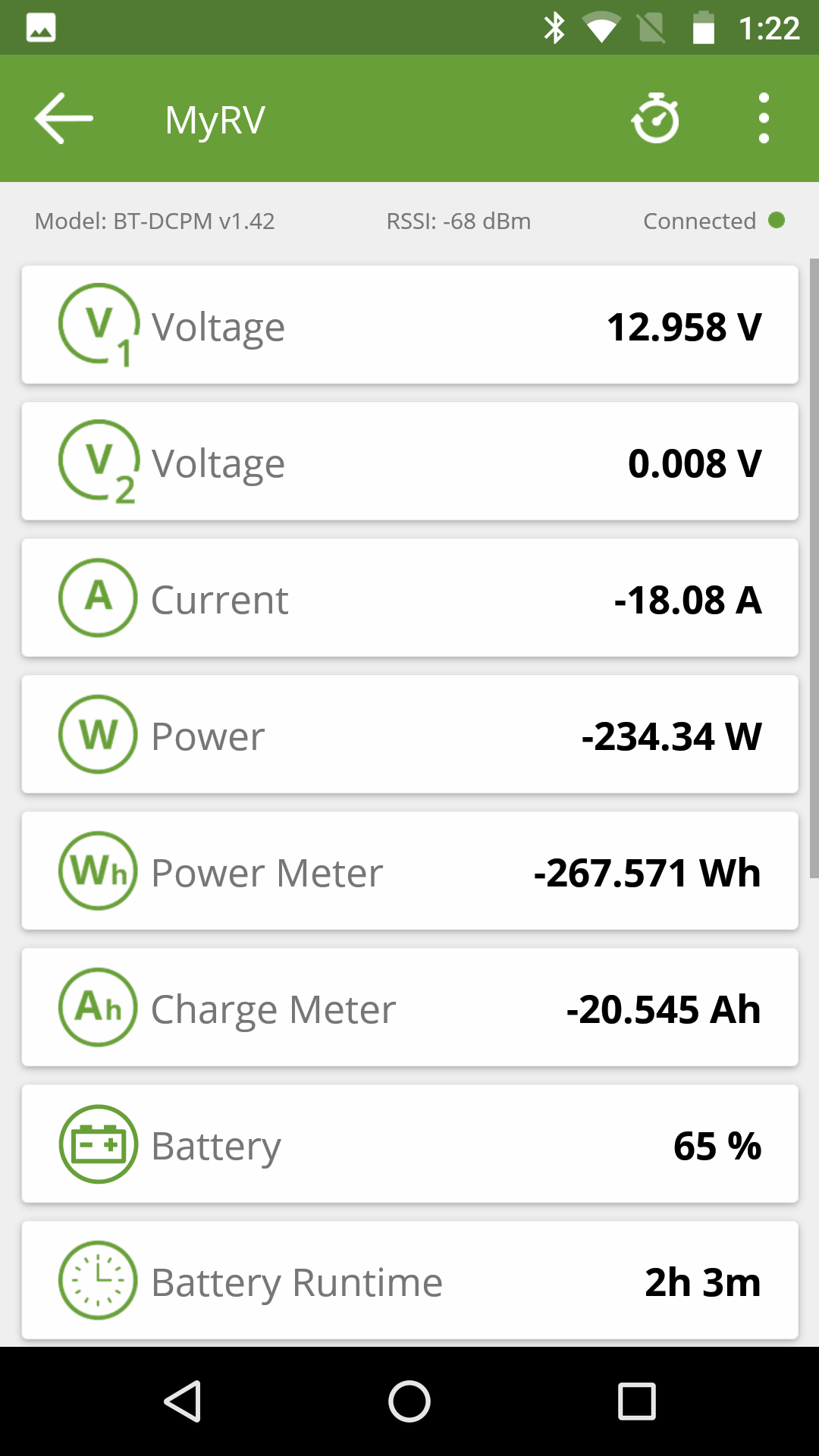
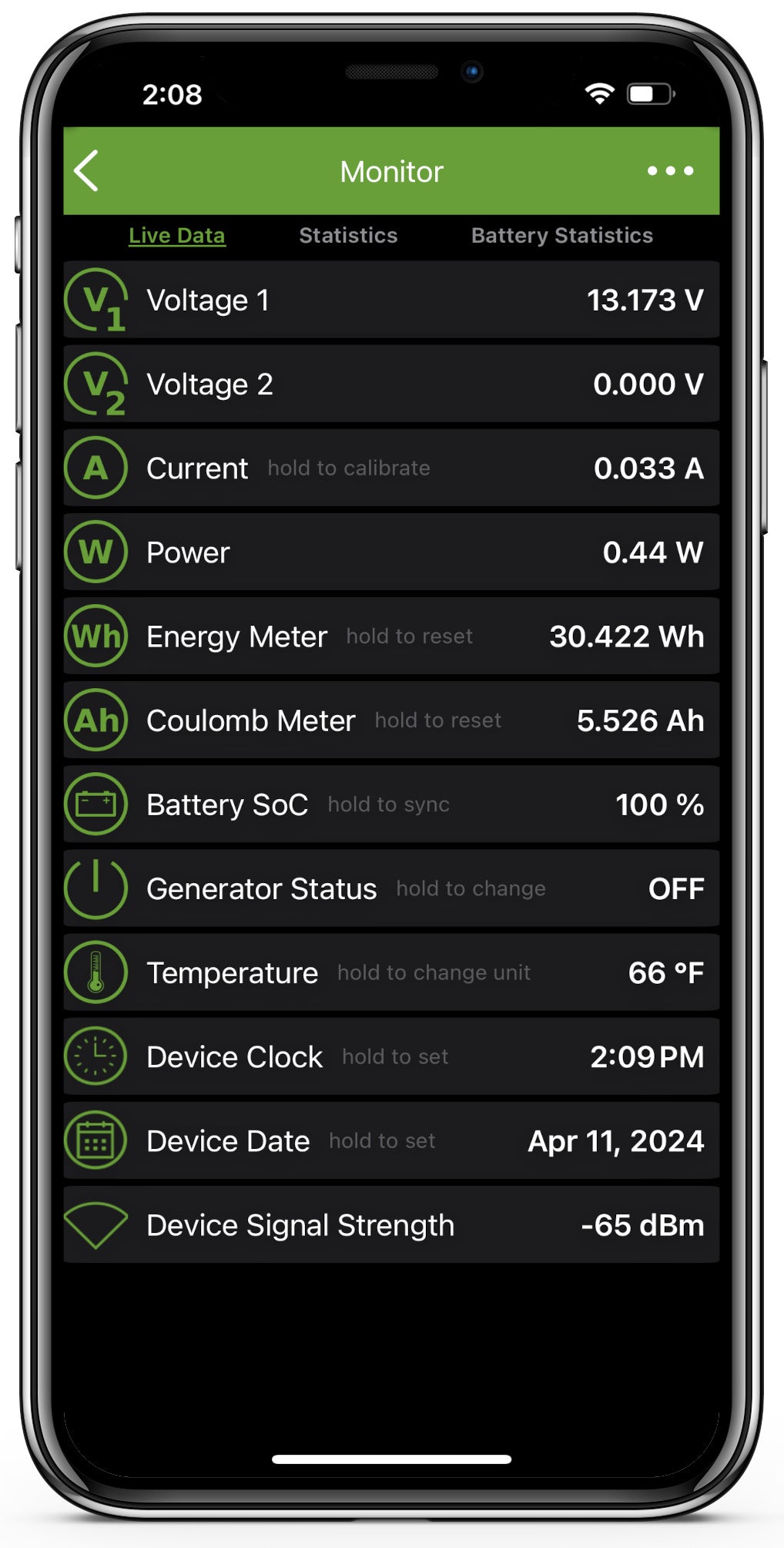
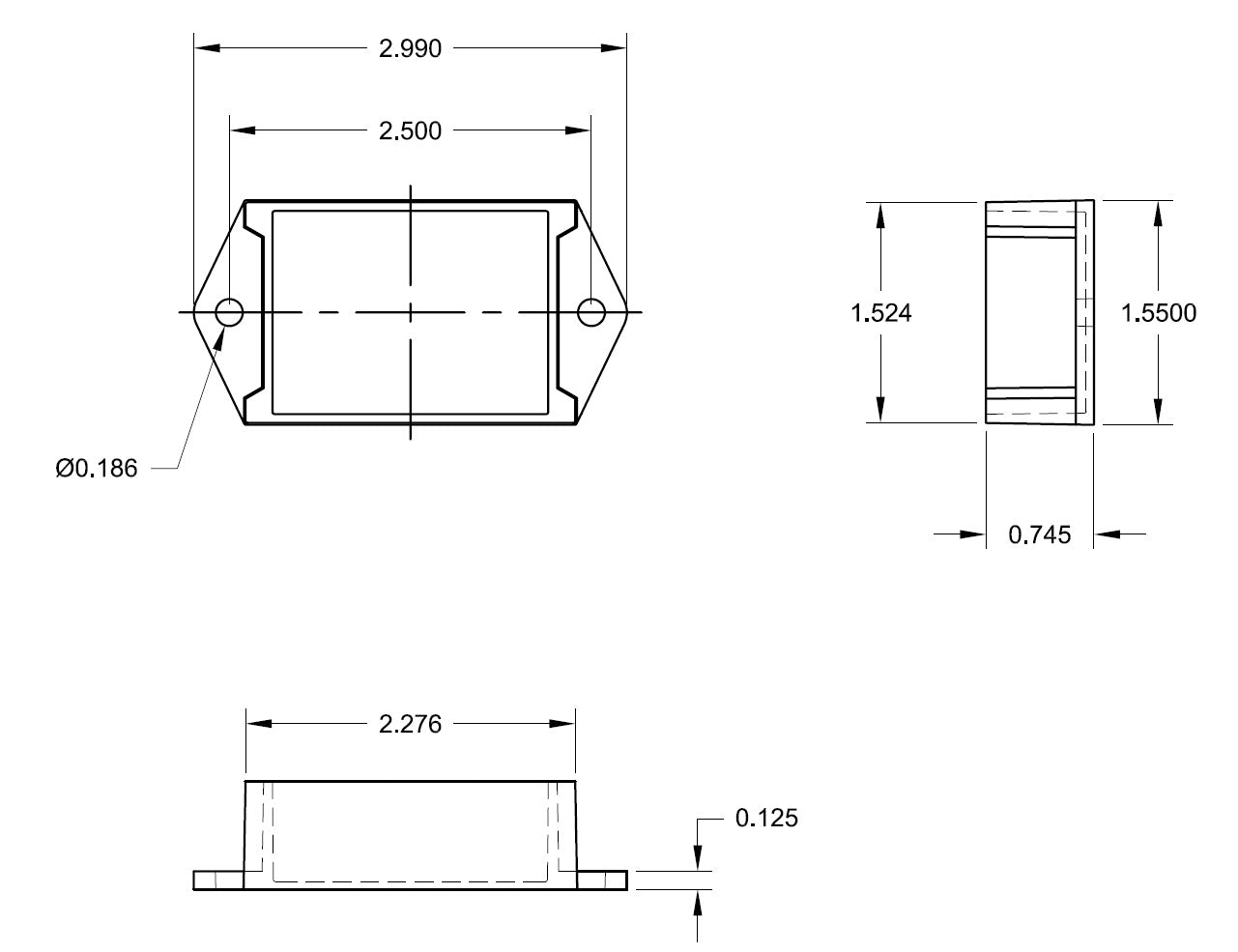
PowerMon - Bluetooth LE Advanced Battery Monitor / DC Power Meter with data logging
Designed and assembled in USA.
We developed the PowerMon device to provide an affordable, high-tech solution for monitoring electrical systems. Whether you're in an RV, camper, or boat, utilizing solar systems, or managing off-grid setups, PowerMon is designed to meet your battery monitoring needs. Remotely monitoring DC circuit parameters has never been easier!
We also have PC software and a library for accessing the PowerMon devices so you can write your own custom software. Check out the PowerMon Software.
Go ahead and test before you buy. Install the PowerMonX app from the Apple / Google app stores. Using your mobile device, tap on the link below. It should open with the PowerMonX app. This is a PowerMon-W demo device. It's the same thing as the Bluetooth PowerMon. It accepts only 16 simultaneous connections so please don't leave your phone connected to it. Other people want to test it too.
Please read the Product Use Disclaimer & Warranty Policy at the bottom of this page before ordering.

Use PowerMon In
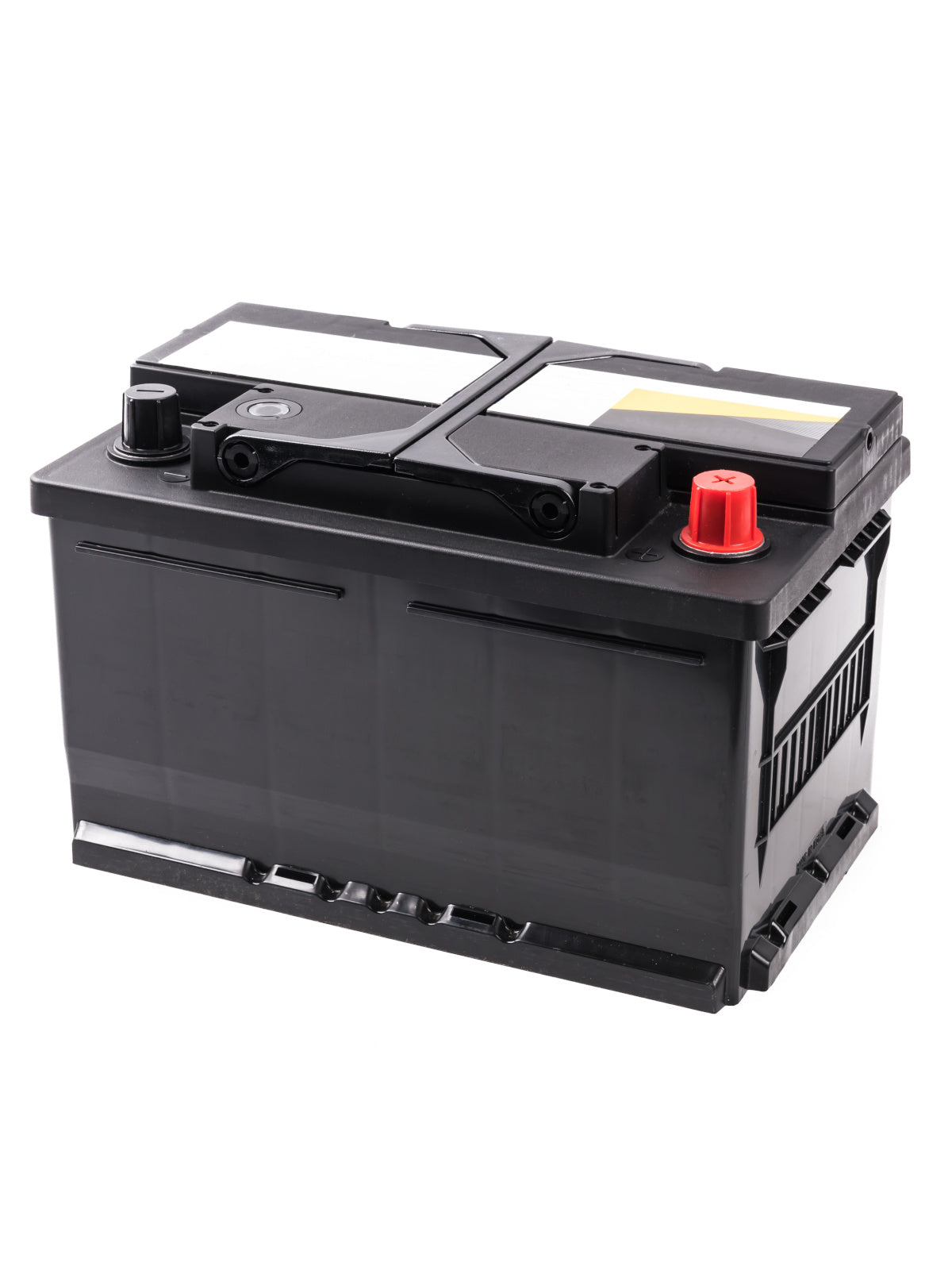
It can measure two voltages up to 65V and current up to 60A using an integrated shunt. It then calculates power (W), energy (Wh), charge (Ah), battery state-of-charge (SOC %), and estimated time left until the battery is fully discharged.
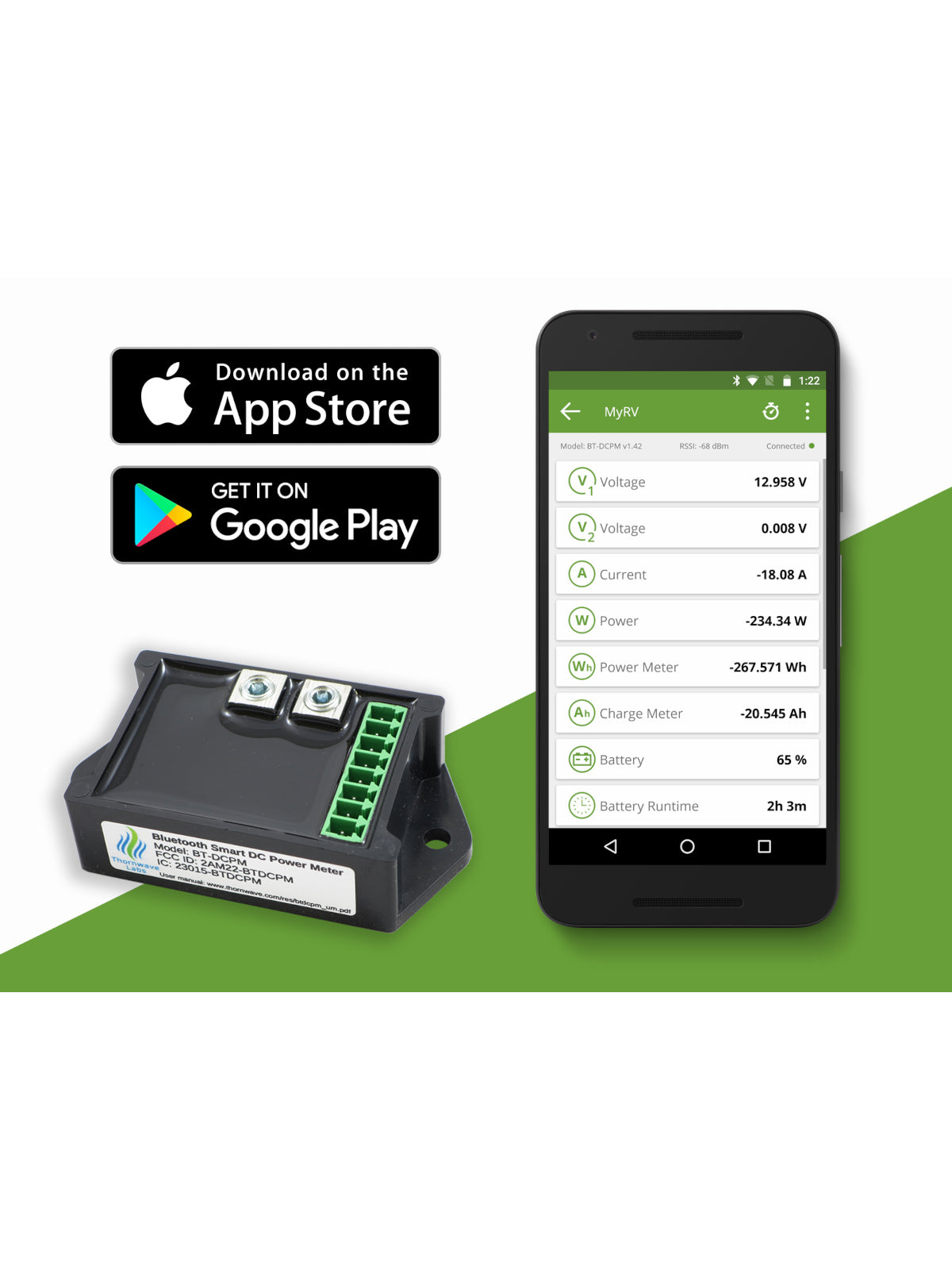
PowerMon is equipped with a Bluetooth LE (Low Energy) radio. You can use your cellphone or tablet to connect to it and check what your battery is doing. Install PowerMon inside a battery box or equipment bay and forget about it.
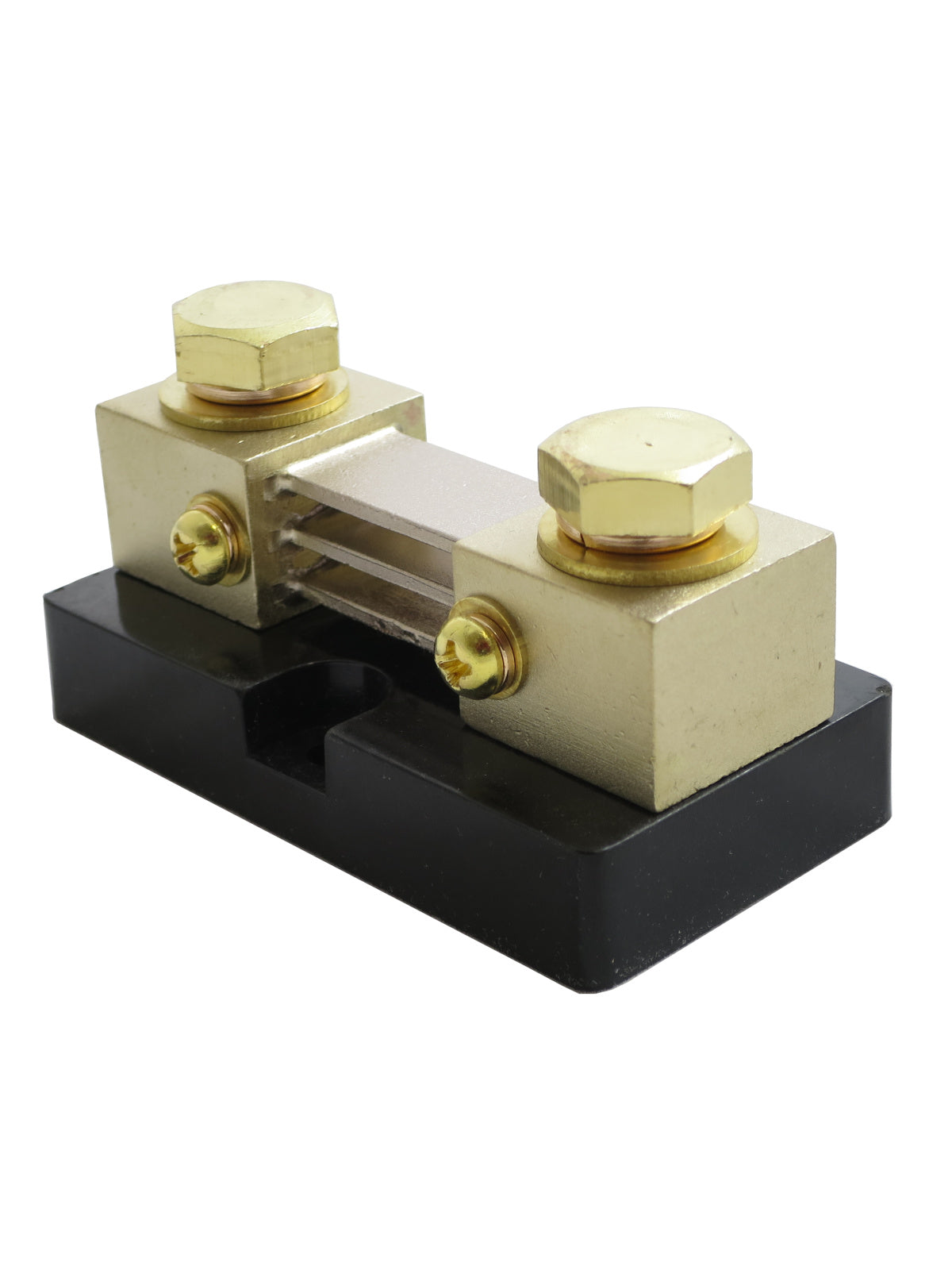
If you need to monitor current higher than the 60A internal shunt is rated for, you can do so! PowerMon can be wired to any external shunt, up to 1000A. Also, it's important to note that whether you are using the internal or external shunt, you can place it on either the positive or negative side.
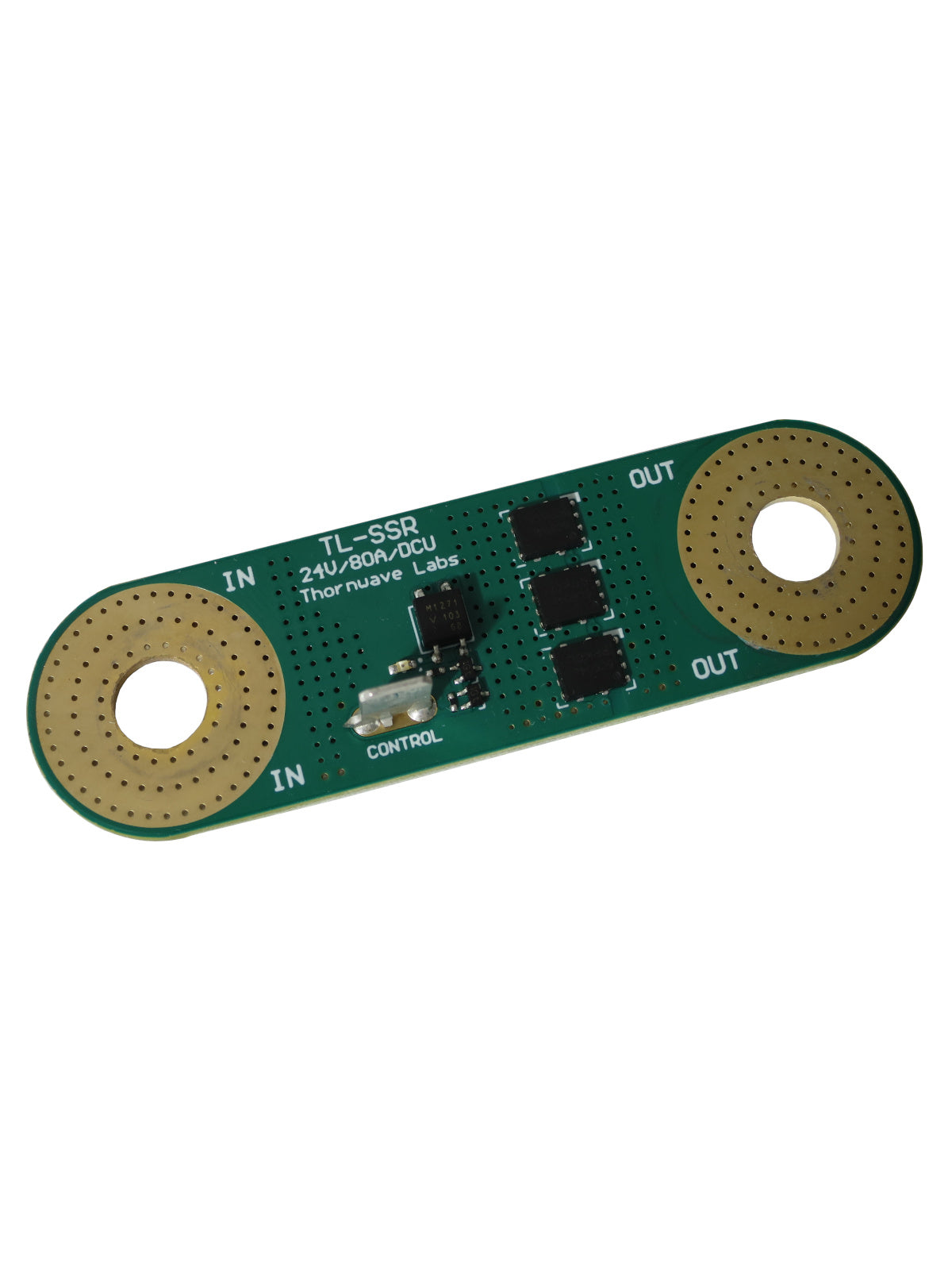
The capability of driving a relay opens up a lot of possibilities. You can use either a mechanical relay or a solid-state relay for various applications, such as a remote ON/OFF switch, battery protection, or even starting a generator.

Don't leave your expensive batteries unprotected!
Paired with a relay, PowerMon can serve various functions, including acting as a low-voltage disconnect, high-voltage disconnect, over-current disconnect, low-temperature disconnect, high-temperature disconnect, or generator controller. And by the way, we also offer timer functionality.
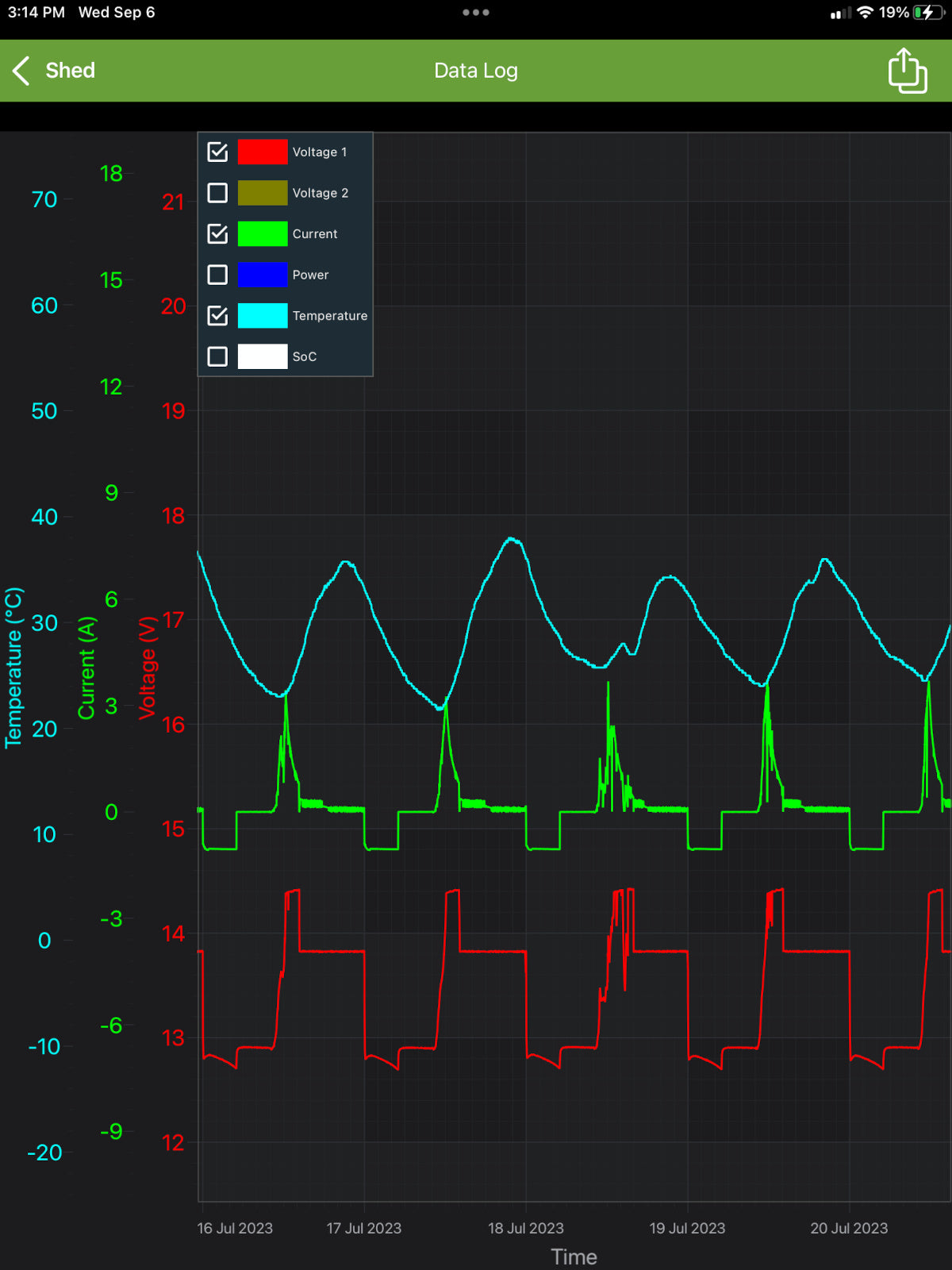
Record what your battery is doing! PowerMon can log data for up to 3 years inside an internal memory, unlike other similar products on the market that store it inside the mobile app. This means you don't need to have a mobile device permanently connected to the battery monitor. Whenever you connect to PowerMon, the mobile app will download the data logs from the device. PowerMon records voltage, current, power, temperature, and state-of-charge, and you can adjust the recording frequency from once a second to once a minute.
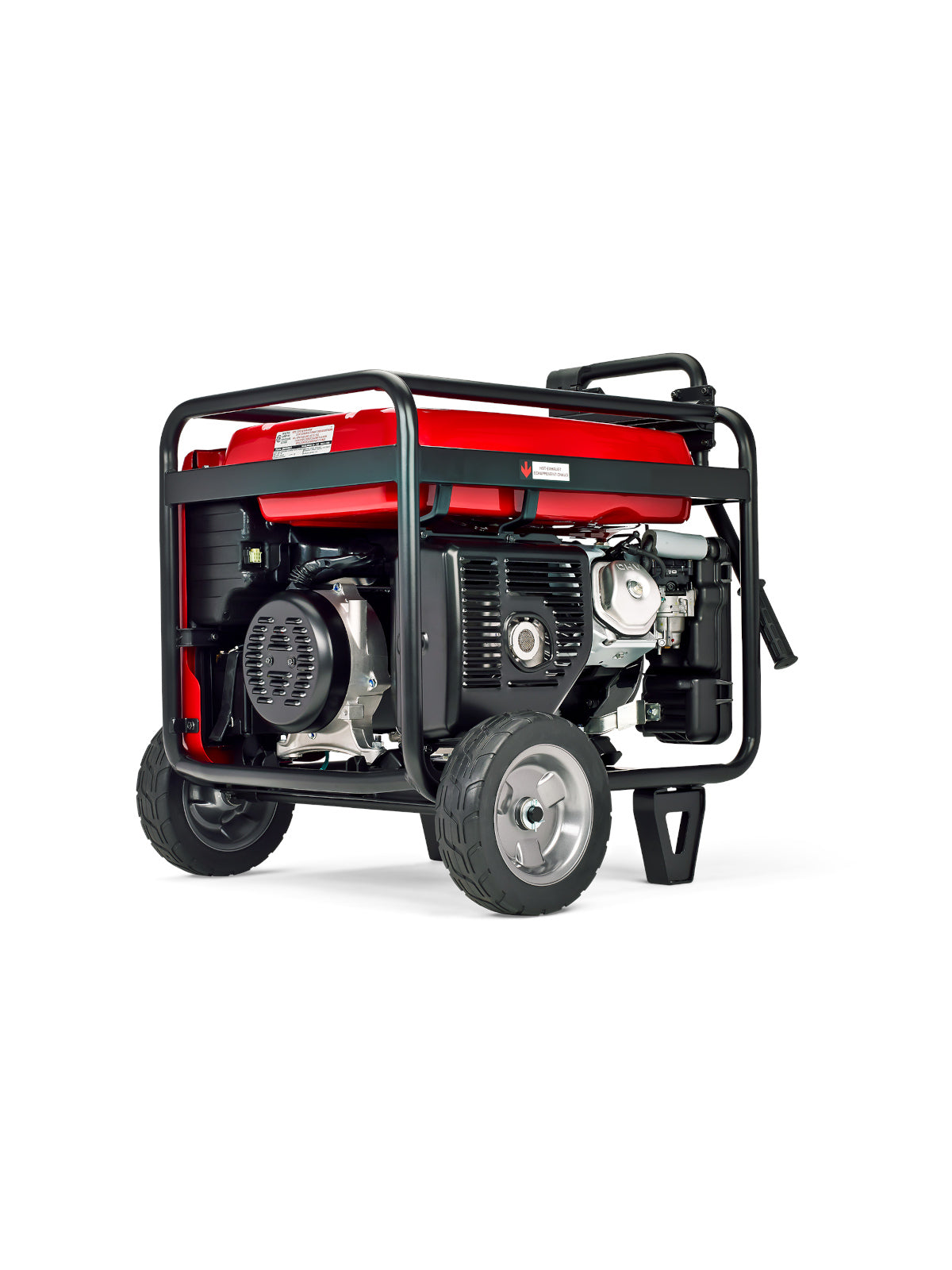
Enable the generator control feature, and PowerMon can start your generator when the voltage or state-of-charge drops below a specified threshold.
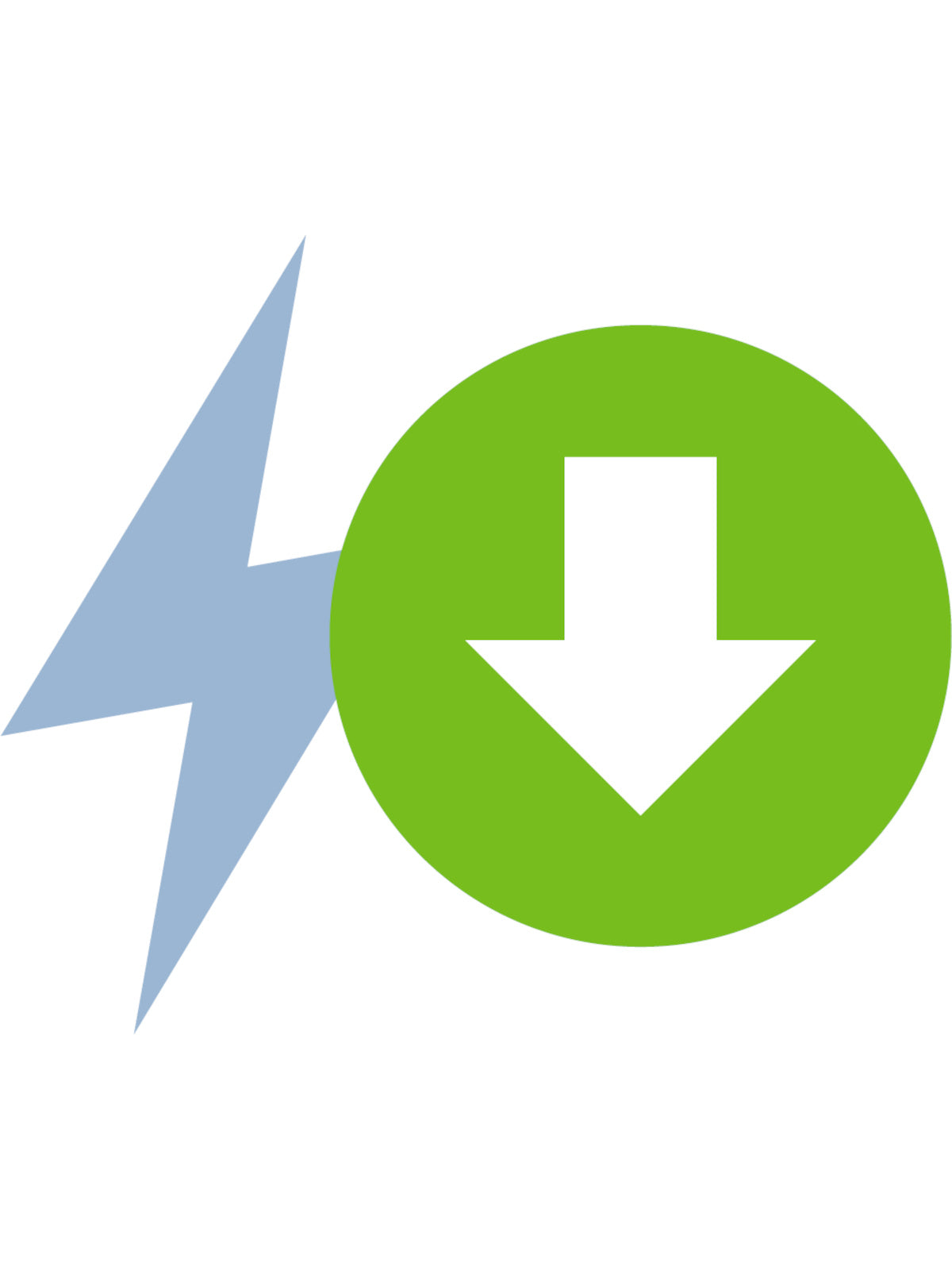
PowerMon does it all while sipping on only 3mA. The battery self discharge is higher than what PowerMon needs to function.
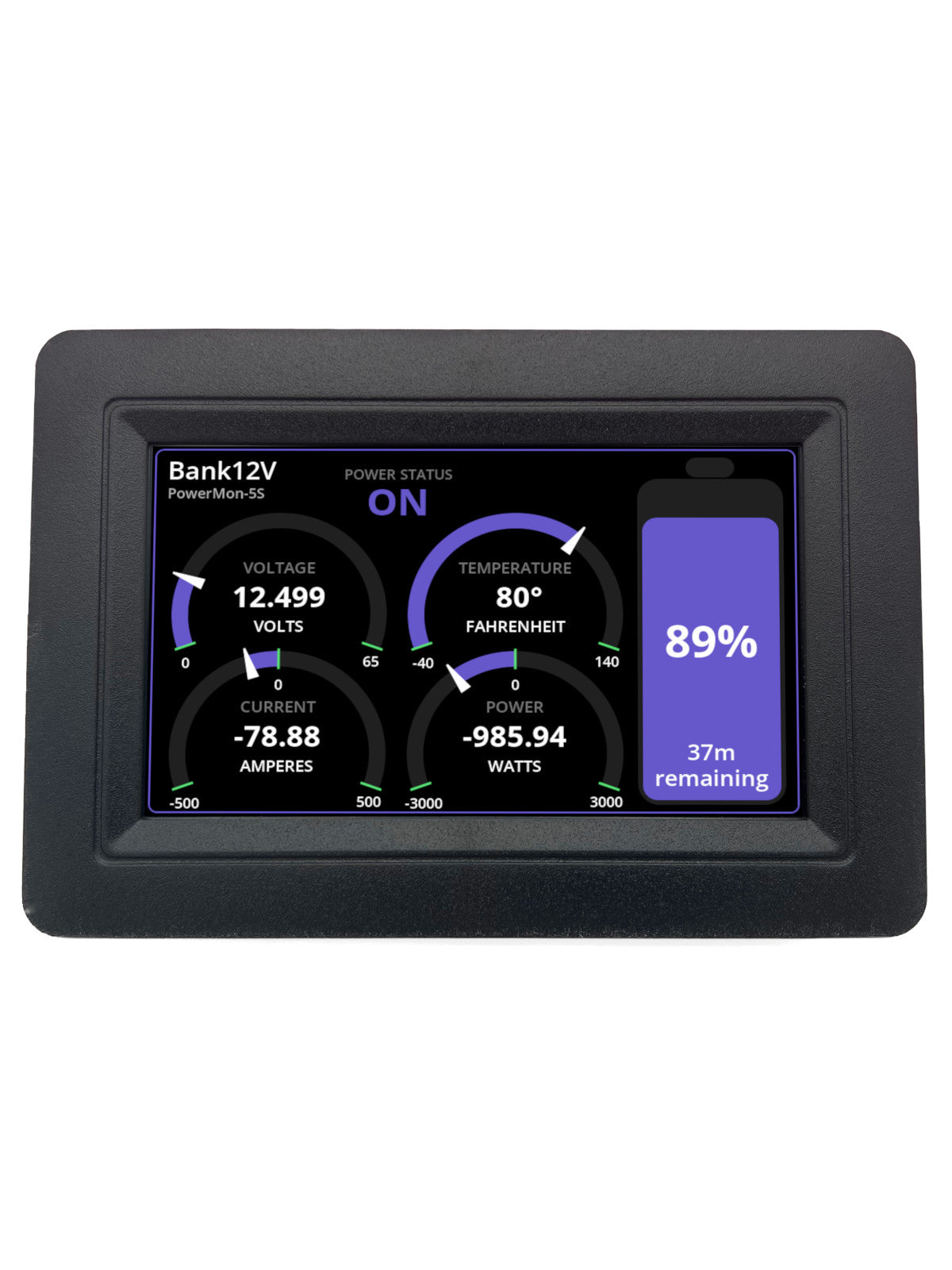
We have a screen to go with it too. PowerMon-D4 is a 4.3" color touchscreen that connects to the PowerMon via Bluetooth. It also has WiFi, and we plan to add support for cloud connectivity in the future.
It can measure two voltages up to 65V and current up to 60A using an integrated shunt. It then calculates power (W), energy (Wh), charge (Ah), battery state-of-charge (SOC %), and estimated time left until the battery is fully discharged.
PowerMon is equipped with a Bluetooth LE (Low Energy) radio. You can use your cellphone or tablet to connect to it and check what your battery is doing. Install PowerMon inside a battery box or equipment bay and forget about it.
If you need to monitor current higher than the 60A internal shunt is rated for, you can do so! PowerMon can be wired to any external shunt, up to 1000A. Also, it's important to note that whether you are using the internal or external shunt, you can place it on either the positive or negative side.
The capability of driving a relay opens up a lot of possibilities. You can use either a mechanical relay or a solid-state relay for various applications, such as a remote ON/OFF switch, battery protection, or even starting a generator.
Don't leave your expensive batteries unprotected!
Paired with a relay, PowerMon can serve various functions, including acting as a low-voltage disconnect, high-voltage disconnect, over-current disconnect, low-temperature disconnect, high-temperature disconnect, or generator controller. And by the way, we also offer timer functionality.
Record what your battery is doing! PowerMon can log data for up to 3 years inside an internal memory, unlike other similar products on the market that store it inside the mobile app. This means you don't need to have a mobile device permanently connected to the battery monitor. Whenever you connect to PowerMon, the mobile app will download the data logs from the device. PowerMon records voltage, current, power, temperature, and state-of-charge, and you can adjust the recording frequency from once a second to once a minute.
Enable the generator control feature, and PowerMon can start your generator when the voltage or state-of-charge drops below a specified threshold.
PowerMon does it all while sipping on only 3mA. The battery self discharge is higher than what PowerMon needs to function.
We have a screen to go with it too. PowerMon-D4 is a 4.3" color touchscreen that connects to the PowerMon via Bluetooth. It also has WiFi, and we plan to add support for cloud connectivity in the future.










Why You Need a PowerMon
PowerMon comparison
In case you were wondering.
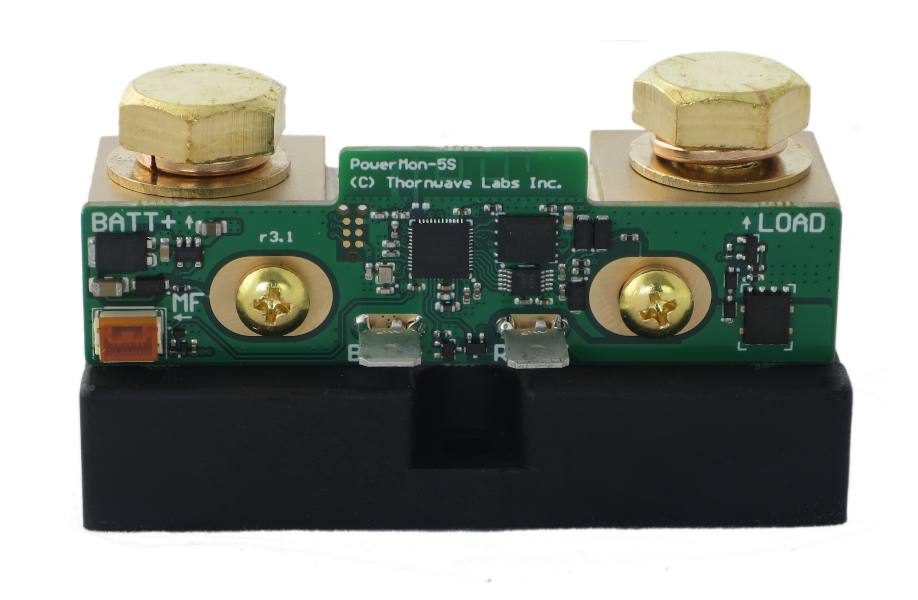
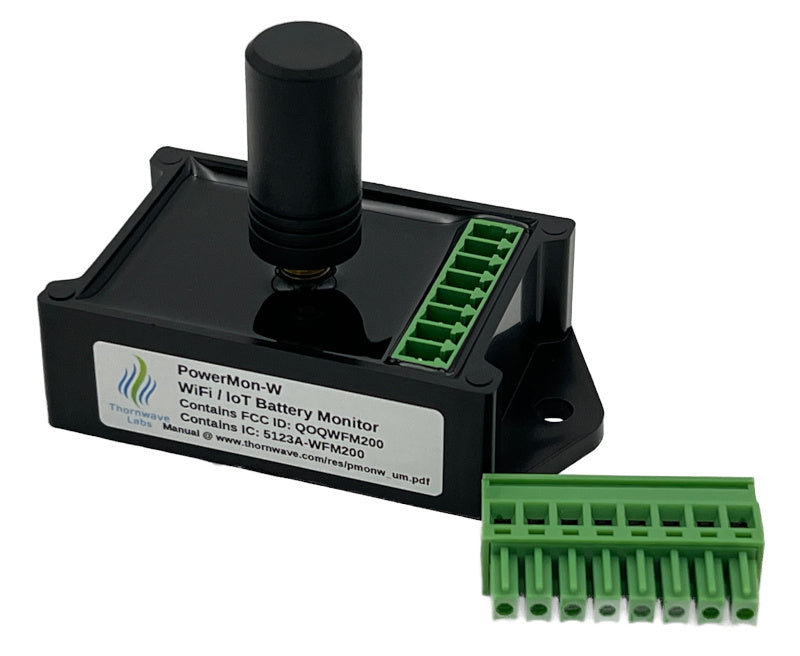


Bluetooth LE
Bluetooth LE
WiFi
Two
One
Two
65V
32V
72V
Max. 60A
Max. 500A
No
Any (optional)
No
Any
Either positive or negative side
Positive side only
Either positive or negative side
Involved (more wiring needed)
Easy (minimal wiring required)
Involved (more wiring needed)
High (device is enclosed in epoxy)
Low (install inside protection box)
High (device is enclosed in epoxy)
Frequently Asked Questions
Here are some questions our customers ask us the most.
I see two apps: PowerMon and PowerMonX. Which should I use?
PowerMonX is our latest app, offering enhanced features compared to the older PowerMon app. All new devices now come equipped with PowerMonX. If you own an older device, you can update to PowerMonX, but please note that it requires a device with a hardware revision of at least 2.3 (2.30). All devices sold after mid-2019 are compatible with PowerMonX.
How can I find the hardware revision of my device?
Connect to your device.
For the older PowerMon app go to the About page.
For the newer PowerMonX app go to the Device Information page.
What kind of relay can I use?
Any relay that matches the voltage of your system and a coil current rating of less than 1A can be used.
It's highly recommended to use a solid-state relay like the TL-SSR12100DCU. However, if you prefer a mechanical relay, it will work.
What about SSRs (Solid State Relays)?
Yes, you can use an SSR. One of its advantages, when compared to a mechanical relay, is that it requires much lower current to hold in the ON state, typically around 20mA, whereas mechanical relays may require up to 1A or higher. This lower current requirement is especially beneficial in boats and RVs where power resources are limited. Additionally, SSRs have the advantage of not wearing out their contacts, producing no sparking, and operating quietly.
The TL-SSR12100DCU SSR was specifically designed by Thornwave Labs for use in RVs, boats, and other vehicles equipped with a 12V electrical system. We also have SSRs for higher voltages.
Should I install the shunt on the positive or negative side of the battery?
PowerMon allows you to install the shunt on either side, or even in between batteries that are connected in series. It doesn't matter as long as the maximum voltage on the shunt is kept within -4V to +65V relative to the battery negative.
We advise installing it on the positive side because this way you will not disturb the ground connection.
This product is rated 4.7 of 5.0 stars.
It has received 28 reviews.

